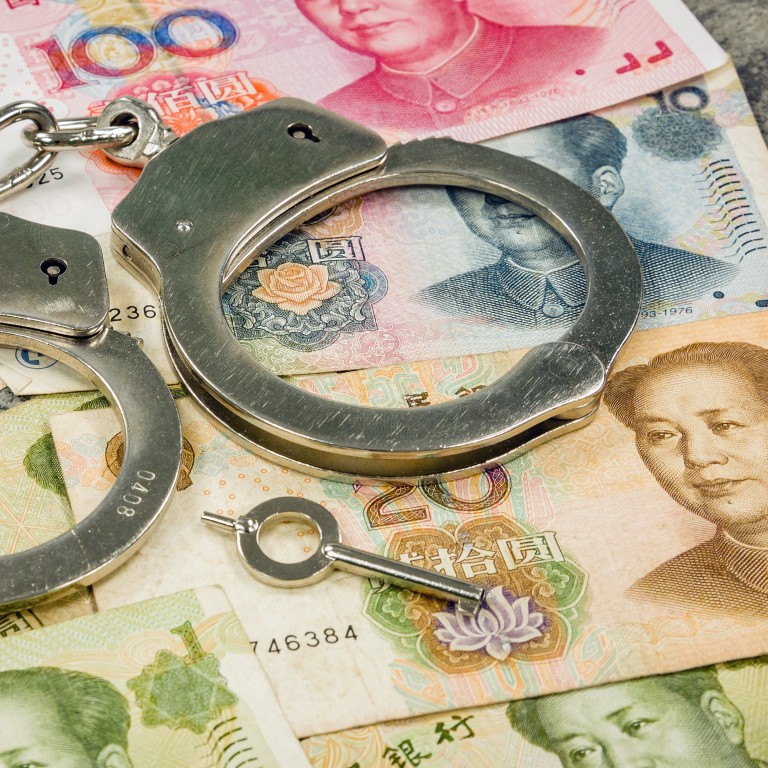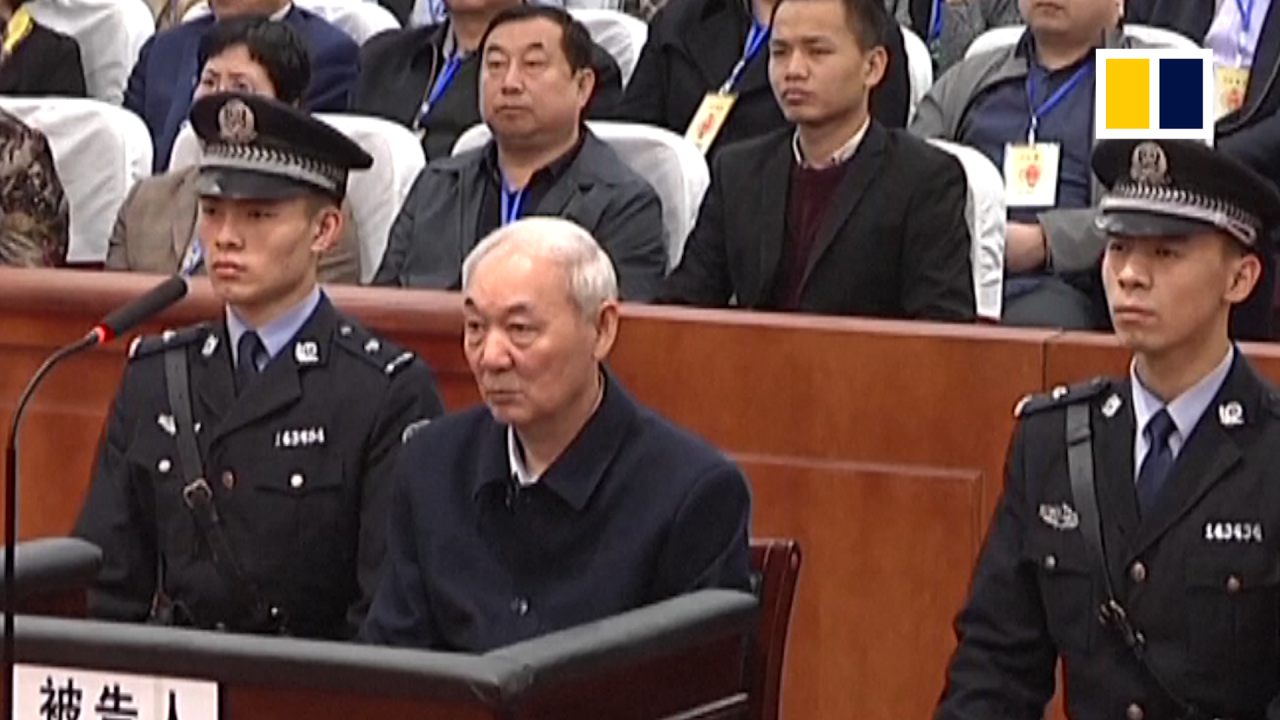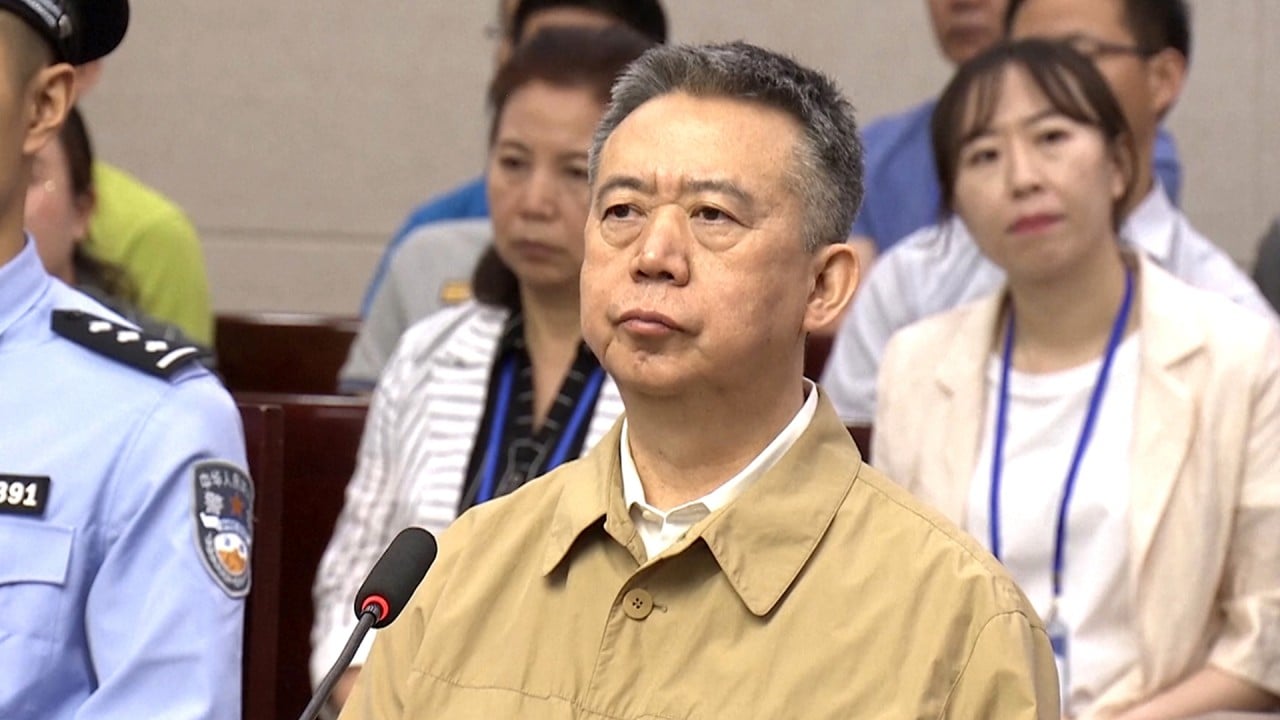
China’s corruption watchdog moves to crackdown on bribe-givers
- Figures from the Central Commission for Discipline Inspection say more than 5,000 people were detained for offering corrupt payments last year
- Historically, people paying bribes could expect lighter sentences than those accepting them, but now they risk being added to a blacklist
Chinese anti-corruption police detained more than 5,000 people accused of paying bribes last year, according to figures from the anti-corruption watchdog.
In 2021, anti-corruption agencies in the country detained 5,006 people for giving bribes and transferred 2,822 to prosecutors for trial.
The figures were included in a report made public by the Central Commission for Discipline Inspection, the Communist Party’s top disciplinary watchdog, last week.
Xinjiang: China to target ‘corrupt’ officials in state TV broadcast
“The number of bribe-giving cases [we] handled from January to November 2021 increased significantly, involving a total of 2,717 people, up 18.3 per cent compared to 2020,” Shi Weizhong, director of the third procuratorial office of the Supreme People’s Procuratorate, told Procuratorial Daily.
Zhuang Deshui, deputy director of the Research Centre for Government Integrity-Building at Peking University, said that while China had handed down heavy sentences for officials who took bribes, penalties for bribe-givers were less severe.
“For example, [officials] who take one million yuan [US$158,000] in bribes may be sentenced to 10 years in prison but the penalty for the bribe-givers will not be as severe,” Zhuang said.
“[This is] because of the need for the investigation,” he said. “[Prosecutors] will take the cases into consideration and recommend lighter sentences for the bribe-givers.
“This is not deliberately condoning giving bribes but more about giving the investigators a better chance to deal with corruption,” he added.
A veteran criminal lawyer who requested anonymity said that bribe-givers received lighter punishment because corruption investigations relied on testimonies and investigators leaned towards striking deals with the bribe-givers in return for confessions that allowed them to convict those taking the bribes.
“If you [the bribe-giver] maintain a solid and consistent testimony, you will be given a lighter penalty or not held accountable. If you do not cooperate with the authorities and retract your testimony, then you will be punished. This is an important way for the authorities to control testimonies and handle cases,” he said.
Yu Wenhao, professor of the law school of Central University of Finance and Economics, said: “Some disciplinary officials emphasise bribe-taking and don’t give equal priority to the bribers, sometimes letting them off so they can achieve higher success in combating taking bribes … so over time people have the perception that while taking bribes is a crime [you] can get away if you are the briber.”
In addition to criminal law penalties such as fixed-term imprisonment and fines, the commission has established a blacklist for those caught offering bribes.
Reporter gets promoted to senior executive while undercover to expose corrupt company
Zhuang noted that the crackdown on bribe-givers sent a deterrent signal and would help promote a fairer and more orderly market environment.
“This shift is in line with the anti-corruption strategy and development direction of the whole country and the whole world. Based on the previous anti-corruption exercise, the campaign has now expanded from the political sphere to the economic and social spheres to clean up the whole country,” Zhuang said.



